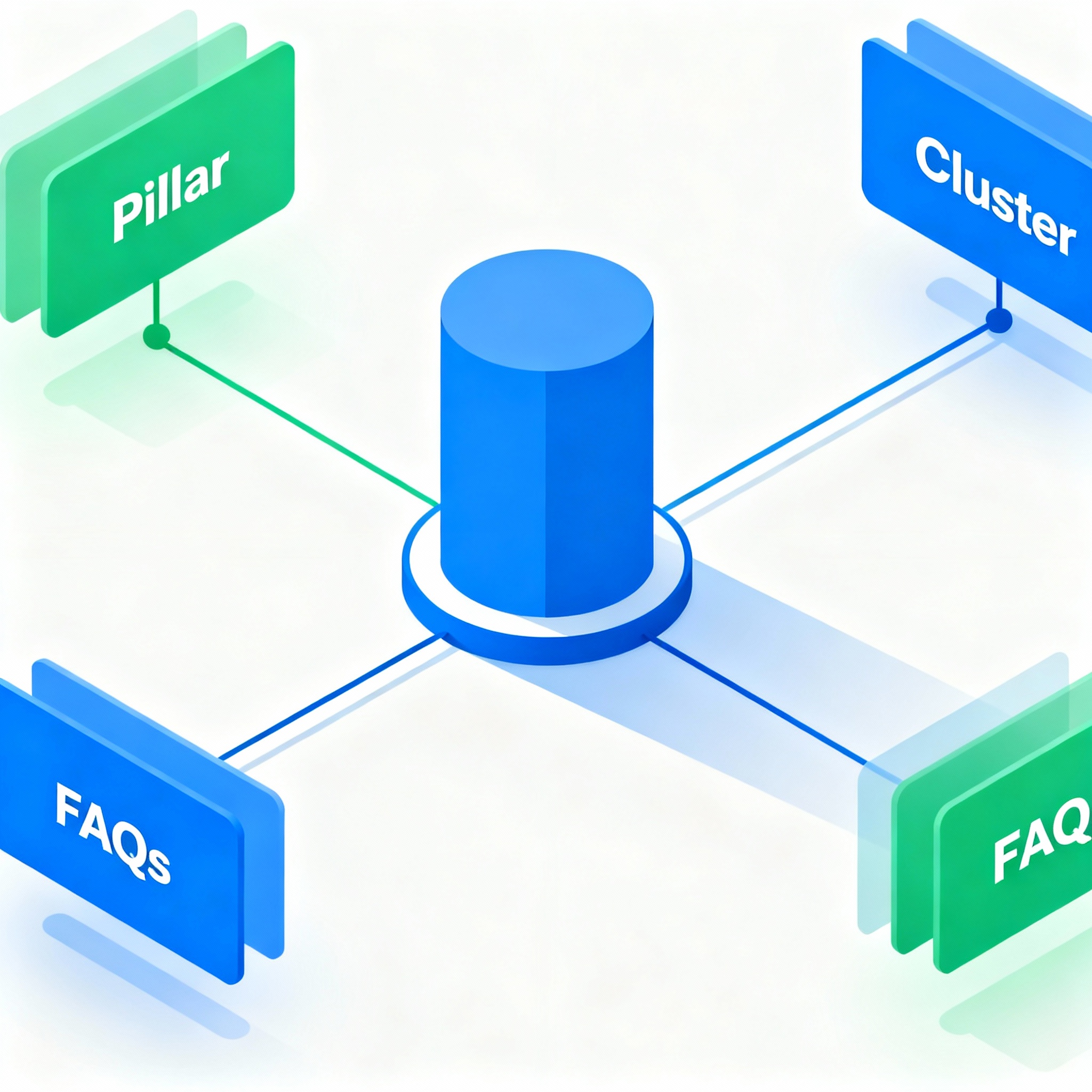If your site feels scattered and pages compete for the same keywords, you’re not alone. Many websites publish useful posts but still struggle to earn sustained organic visibility because their content lacks structure and depth. That is where a clear strategy to define topical authority changes everything.
Topical authority is more than a buzzword. It is a measurable outcome of deliberate content planning, covering, and connecting related subjects so search engines and users see your site as the go-to source on a theme. This guide walks you through what topical authority actually means, why it matters now, and practical steps to build it without wasting time on shallow content.
What topical authority means, in plain English
Topical authority is your website’s perceived expertise and depth on a specific subject area. When you have topical authority, search engines are more likely to trust your site to answer new or complex queries related to that subject. That trust translates into higher rankings, faster gains for new pages inside the topic, and more featured snippets and AI-generated answers.
Think of topical authority like a library section. A bookstore with an entire wall dedicated to gardening, with comprehensive guides, how-tos, and product reviews, will feel more authoritative to a reader and to indexing systems than a storefront with a handful of garden articles scattered in general categories.
Why topical authority matters today
- It helps you rank for both broad and long-tail queries, because your content covers the topic from multiple angles.
- It accelerates ranking velocity for new pages inside the topic. Search engines reward sites that consistently publish high-quality, related content.
- It increases the odds of being pulled into AI answers and knowledge panels, because models prefer coherent sources built around a theme.
For a practical audit or to test your site’s readiness for AI-driven results, run a quick AI visibility check. If you want an automated analysis tailored to your pages, try the free AI search audit available on Marvlus. It highlights topical coverage gaps and action items that matter.

Define Topical Authority: a working definition
Topical authority is a site-level signal that arises when you cover a subject comprehensively, link related content together, and earn external validation for that topic. Key elements include:
- A clear pillar page that outlines the main topic and links to deep subtopics.
- A systematic set of cluster pages that address subtopics and user intent variations.
- Strategic internal linking that signals topical relationships to crawlers and users.
- Original insights, author expertise, or unique data that show real-world experience.
- Relevant backlinks and mentions from other trusted sites in the niche.
How to build topical authority, step by step
1. Choose a focused topic cluster
Start with a narrowly defined core topic you can realistically own. Aim for a niche where your team has real expertise, and where user intent clusters naturally into subtopics.
2. Create a pillar page that maps the subject
Your pillar should be a hub that explains the subject at a high level and links to subpages. Make it useful, scannable, and updated regularly.
3. Publish deep cluster content
Each cluster page should solve a specific user problem, include practical examples, and link back to the pillar. Avoid thin or repetitive posts.
4. Use internal linking strategically
Link from cluster pages to the pillar and between related subtopics. Internal links distribute topical signals and help users navigate the subject.
5. Demonstrate expertise and experience
Add author bios, case studies, original research, and unique examples. Firsthand experience and citations strengthen trust.
6. Earn topic-relevant backlinks
Outreach, partnerships, and content that naturally attracts links will amplify your authority faster than internal tactics alone.
7. Monitor and iterate
Track rankings, organic traffic, and keyword sets inside the topic. Use traffic and ranking trends to prioritize new cluster pages.
For hands-on tools to automate research and content creation across topic clusters, check Marvlus Tools and the AI search optimization features on Marvlus. These can help you scale pillar and cluster production while keeping internal linking organized.

Measurement: how you know it’s working
- New pages inside the cluster rank faster and for more keywords.
- Organic traffic for the topic cluster grows month over month.
- Your site starts appearing in answer boxes, knowledge panels, or AI responses for related queries.
- Backlinks and social mentions focus on the subject area.
Industry guides and research explain how topical approaches map to ranking results, and they provide tactics you can adopt. For a comprehensive primer, see the Semrush guide on topical authority. Also review Google’s guidance on topic-focused news authority to understand how specialized coverage matters for trust.
Common myths and objections
- "More pages equals authority" is false. Quantity without depth creates noise. Focus on depth, not volume.
- "I need massive domain authority first" is partly false. Small sites can build topic-specific authority with tightly focused content and useful resources.
- "Topical authority is only for blogs" is false. Product sites, SaaS docs, and ecommerce stores can and should build topic hubs relevant to their audience.
FAQs
What is the difference between topical authority and domain authority?
Domain authority is a broad metric summarizing site trust and backlink profile, while topical authority is specific to a subject area. You can have high topical authority in one niche even if your overall domain authority is modest.
How long does it take to build topical authority?
That depends on your niche competitiveness and content quality. Expect measurable signals in 3 to 9 months with a focused plan, though true dominance may take longer.
Should I delete unrelated content to improve topical authority?
If unrelated content is low-quality or confusing users, pruning can help. Keep content that supports your audience or is easily improved. A content audit is a good first step.
How many internal links should I use per page?
There is no fixed number. Link naturally where it helps users and demonstrates relationships between pages. Prioritize relevance over link counts.
Can AI tools help build topical authority?
Yes, AI can accelerate research, topic mapping, and draft creation, but you must add real expertise, examples, and edits to maintain quality and originality.
Are pillar pages required to build topical authority?
They are highly recommended because they provide a visible hub for both users and search engines, but the underlying principle is coherent, well-linked content covering the topic.
Get expert help building topic authority
If you want a fast, data-driven route to map topic clusters, audit gaps, and publish content that builds real authority, explore Marvlus’ free AI search audit and tools to automate research and publishing. Use the audit to see specific missing subtopics and prioritized fixes you can implement right away. Visit Marvlus to run an audit and start building a smarter content hub.
- Start with a quick AI search audit: https://marvlus.ai/free-ai-search-audit/
- Learn how Marvlus automates SEO and content production: https://marvlus.ai/tools/
- See AI search optimization guidance: https://marvlus.ai/ai-search/
Conclusion
Topical authority is a practical, tactical outcome, not a mysterious metric. Build it by picking the right topic, creating a strong pillar plus deep cluster pages, linking them logically, and proving your expertise with original insight. Over time, a well-built topic hub attracts users, wins links, and becomes the source that search engines and AI systems prefer.
If you want a focused plan that saves time and scales, try a targeted audit and a content map, then prioritize the clusters that will move the needle for your business. Good topical authority compounds, and the payoff grows with consistent, helpful work.

